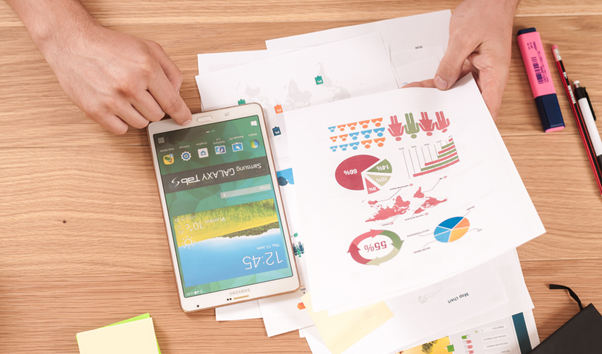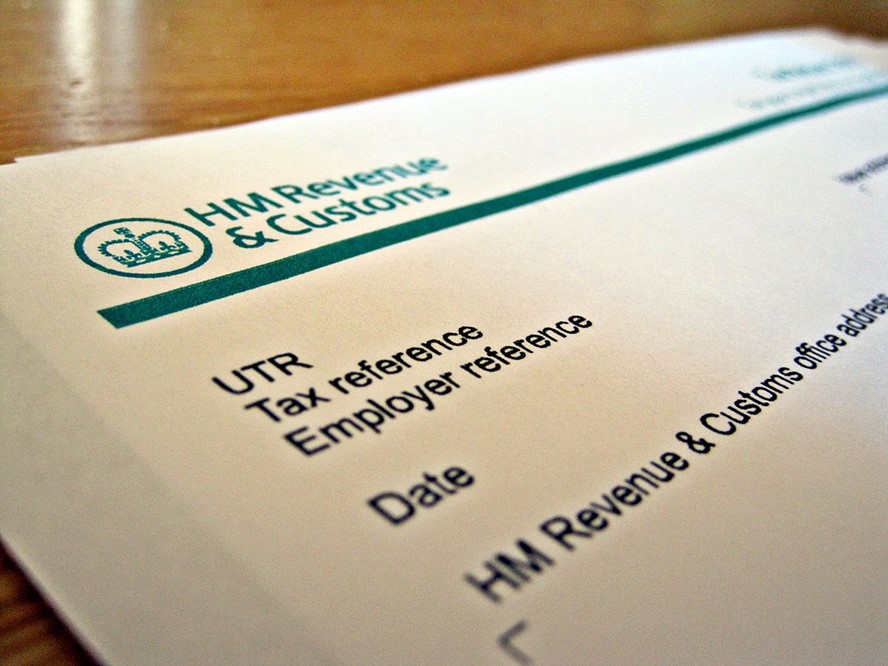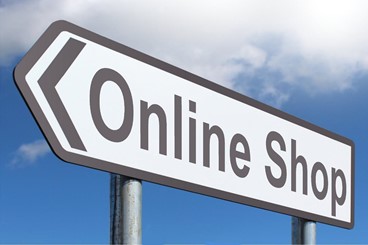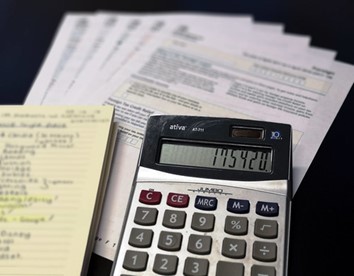Contractor and IR 35 – When does it apply to you?

As Albert Einstein said on his taxes ..’this is too difficult for a mathematician. It takes a philosopher’. I would agree with Albert Einstein when I got to know that there are off payroll working rules existed but luckily we have accountants today to help sort out our accounts and taxes. We at Taxaccolega are not philosophers but a team of accountants who can help you with your income taxes, tax returns, payment on accounts. If you are contractor and have an income of more than £1000 per year you will have to fill in self- assessment tax return and pay income taxes. Establishing if you are a contractor or an employee is very important. It will determine if you are within IR35 or outside IR35. WHAT DOES IT MEAN TO BE INSIDE IR 35 AND OUTSIDE IR 35? Being inside IR 35 means that HMRC sees you as an employee of the company and you have to pay taxes accordingly through deemed employment payment.Being outside IR 35 means that you are considered as a self- employed. HOW DOES IT AFFECT YOUR TAXES? If you are inside IR 35, you are considered an employee for tax purposes. You will have to pay income tax and NI like an employee. There is an advantage as well, if your contract is inside IR 35 you will be entitled to maternity pay, sick pay, furlough payments etc. This If your contract is outside IR 35, you can pay your taxes efficiently. You can pay yourself and pay taxes in a tax efficient way. If you are working as an self-employed the tax paid can be saved around 20% or more depending on the income that you have. WHAT DOES IT MEAN TO BE A CONTRACTOR? You are a contractor if the you are carry out some work for a company or an individual. A contractor will typically have some specialized skills such as an IT software designer and he will be working as a self- employed business. If you are a contractor the following will apply to you: UNDER WHAT STRUCTURES DO CONTRACTORS WORK? Contractors can work as self employed and sometimes they work through an intermediary. This intermediary is often a limited company, however, according to HMRC website it could also be a partnership, a personal service company or an individual. If a contractor is providing a service through an intermediary, and their contract with their client is such that they would be considered an ’employee’ if they had not been working through the intermediary. HMRC wants to make sure that they are paying ‘ broadly’ the same amount of tax and NI as other employees and hence the introduction of IR 35 or off payroll working rules. To calculate deemed employment tax check the HMRC website here It is very important that you have know exactly what kind of services you are providing and if your contract is in IR35 or out of IR35. If HMRC finds out that you were supposed to be paying income tax and NI as an employee, you will have to pay back to HMRC. The rules and the calculations can get a little complicated, if you need help in understanding or implementing IR 35 just call Taxaccolega accountants at 020 8127 0728. Accountants based in Surrey and Croydon are available at affordable prices to help you with your taxes and other accounting services such as VAT.
Social Influencer – Will I be taxed?

Sitting home and making money couldn’t get any easier as it has now. We have seen lots of success stories of people around us who are making so much money through social media that they have quit their jobs. It is a dream job for many as they can just peruse their hobby such as travel, wood work etc and make money by sharing their experiences. By the sound of it, it seems that its just a hobby that is being pursued however, in reality the more you are getting noticed by the people around you the more chances are that your income will be scrutinised by the HMRC. As I always say , when you have money coming in you will have to pay taxes. If you are doing some activity through which you are earning money and you are spending some money so that you are able to do that activity HMRC will consider it a business and you will be liable to pay taxes. It is always a good idea to get in touch with an accountant who can advise you on taxes in this area so you are not worried about getting a penalty from HMRC for not reporting your income. HOW DO I REPORT MY INCOME You will have to report your income from social media such as YouTube on the self-assessment tax return. If you have income of more than £1000 in a single tax year you will have to register for self-assessment tax return by 5 Oct and fill in the self- assessment tax return and file it by 31 Jan of the following year. See our blog here to understand the deadlines. You can register for self-assessment as self-employed online by following the link here HOW MUCH TAX WILL I BE PAYING? How much tax you will be paying will depend on the income that you are earning. When you are a social influencer such as a you tuber, its not always your main job. For example, you might have a stable job on which you are paying taxes and you are just uploading videos. The extra money that you are making is more than £ 1000 per year. In that case you although you might be paying your taxes at source, meaning your employer has deducted the tax and NI before paying you the salary. You are required to state your salary in your self-assessment tax return form as shown in your P60. This would also mean that you might have utilised your tax free personal allowance which is currently £ 12 500 and is set to increase to £ 12 570. You will be paying taxes according to the tax brackets in which your income falls. To learn more about the tax thresholds click here. CAN I CLAIM ANY EXPENSES? Yes, very confidently. If you are ready to declare all your income and pay taxes on it you can claim any expenses from HMRC as well. Claiming expenses mean that you will be.
National Insurance- How much do I have to pay?

IS NATIONAL INSURANCE A TAX? You pay National Insurance to HMRC if you are above 16 years old and you are working as an employee earning a minimum of £ 183 per week. You will also have to pay National Insurance if you are self-employed and making a minimum profit of £ 6475 per year. If you are self employed making National Insurance contributions you will be entitled to certain benefits such as state pension, contribution-based Employment and support allowance, maternity allowance etc. However, they will not be able to claim Contribution based job seeker allowance. When you are employed, and you are working as an employee of the company the employer will deduct NI from the pay before you get the salary. When you are self employed you will have to pay NI when you are paying your income tax in your annual self -assessment tax return. You will continue to pay NI until you are the state pension age. There are different kinds of NI depending on the type of work you do: Class 1: If you are an employee and earning more than £ 183 per week, your employer will automatically deduct NI from your wages. Class 2: If you are self-employed and you are earning a profit of more than £ 6475 per annum you will pay NI in your self-assessment tax return. Class 3: You pay Class 3 NI when you are earning less than £ 6475 a year voluntarily. So that you do not have a gap in your NI contribution record. This can affect your State Pension as you need to have ‘Qualifying years’ to be eligible to get full state pension. Paying voluntary contributions is not that straight forward. You need to be eligible to pay voluntary contributions. Class 4: If you are Self employed and earning a minimum profit of £9501 per year. You will declare your total earnings in your self- assessment tax return and then HMRC will calculate the National Insurance that you have to pay. TAX ON COMPANY BENEFITS: You do not have to pay tax on the company benefits unless they are cash gifts or can be converted into cash. In that case they can be treated as earnings and you will have to pay tax on the value of the gift. The NI that your employer will pay on the company benefits that they give you are called Class 1A or 1B NI. NI THAT YOU MUST PAY IF YOU ARE BOTH EMPLOYED, AND SELF-EMPLOYED: In case you are both employed and self-employed, for example if you run a business as a limited company. You work as a director of the company and you get a salary from the company through PAYE. You will be paying Class 2 and Class 4 NI as part of your self-assessment depending on the level of your earning. You will also be deducting Class 1 NI from the wages, through PAYE. As the NI depends on the level of the earnings, you should be able to workout your total earnings from all the sources. This can be a little tricky and you might want to hire an accountant for that. We at Taxaccolega have accountants and Chartered accountants who not only do your numbers but also advise you on how to improve your numbers, maximising your profits and minimising your costs, including your tax costs. If you want to save money yet pay your taxes on time and in the most efficient way contact Taxaccolega at 020 8127 0728 and our expert accounting teams in Croydon, Surrey and Southall will be happy to help you.
I am a Landlord- How much NI will I have to pay?

When you think of running a business it is very important that you know what costs may be involved so you have a fair idea of how much profits you will make. If you rent a property as a business, you must pay a certain amount to HMRC in the form of income tax and National Insurance. Renting a property is considered a business if all the following applies: If the above applies to you it means you must pay NI. If you are an accidental landlord that means you do not have to pay NI even if you advertise for renting out the property or get the repairs done. If you are running a business, you will be either running a business as a sole trader or you will be running as a limited company. IF YOU RUN A BUSINESS AS A SOLE TRADER: If you run a business as a sole trader, you will be paying NI with your self-assessment tax return if your profits for the year are £ 6475 or more. The type of NI you will pay is Class 2 NI. The tax rate for 2020/2021 is £ 3.05 per week. Most people pay their NI contributions through self-assessment. You are usually required to register yourself for self-assessment when you are earning more than £1000 per year. However, you can register voluntarily even if your profits are less and pay NI voluntarily just to make sure that you get full state pension – which requires a contribution of 35 years. You must note that the NI is paid when you reach a certain threshold for profits and not for the rent itself. To come to a profit figure, you have to deduct all the ‘allowable expenses’ from the rent that is paid to you. The allowable expenses will include all the costs involved in repairing, replacing and maintenance of the property. This will include repairing of water leaks, replacing of fixtures and fittings, repainting of walls. If you have hired some equipment to carry out the repair work, then you can deduct its cost from the rental income as well which will in turn reduce your taxable profit. If renting your property is your main business, you are most likely to have your unused personal allowance. For the year 2020/ 2021 the personal allowance is £12 500. Once you have calculated your rental profit by subtracting your allowable expenses from the rental income, you must subtract personal allowance from the rental profit. The remaining figure is your taxable profit. RUNNING A BUSINESS AS A LIMITED COMPANY If you are running a business as a limited company, and you are working as an employee you will be paying Class 1 NI through your PAYE system- Employees NI. We will cover that in detail in our next blog. We at Taxaccolega have an expert team of property accountants if you are looking for accountants in Croydon or accountants in South hall you should contact us at 020 8127 0728 and our expert team of accountants will be happy to help you.
Post Brexit VAT- What should you be aware of if you sell on E bay or Amazon

The exit of UK from the EU has affected the trade across the borders. Many small businesses are facing challenges while importing or exporting goods. The online sellers are worried about implementing the changes and are still not sure how to account for changes especially when it comes to VAT. HMRC has advised that seeking an advise from an expert such as freight forwarder should be considered , however for the implementation of changes in the VAT you might need to get some professional advice from an accountant, you can contact accountants in Croydon, Surrey for advice. WILL THE CHANGES APPLY TO ME? The changes will apply to you if you THE CHANGES All Sales to the EU countries and non-EU countries will be consider as Exports and according to HMRC guidance they will be considered as zero rated for VAT purposes. If you are selling through an online marketplace such as Amazon, E bay or Shopify, these online market places will start collecting VAT and transfer to HMRC if either of the following apples: HOW WILL VAT BE ACCOUNTED FOR IN THE BOOKS AFTER BREXIT Scenario 1: An online business which is based in the UK , sells an item for £ 12 and the sale is made from EU to GB through amazon and the marketplace (for example amazon ) was responsible for collecting VAT. If the customer was charged £12 for the order, £10 will be paid to the seller and £2 VAT will be held by the amazon to be transferred to HMRC. Seller will not be responsible for any VAT they will just record the net amount of £10 in their books. Scenario 2: An online business based in the UK made its sale from GB to EU , if the customer is charged £12 for the order , all of the £12 will be paid to the seller, the seller will record the sale of £12 as zero rated- VAT will be payable to the EU country and calculated separately and accounting for according to the rules of that EU country. In short, Sales from the overseas seller where the goods are already in the UK at the point of sale, the online marketplace such as amazon will be responsible for the VAT collection on the behalf of HMRC. If the value of the goods supplied is not exceeding £135 like in the above example and the goods were outside the UK at the point of sale and are supplied to the VAT registered business in the UK a VAT reverse charge will be applied. In this case the UK VAT registered customer will account for the VAT by means of the VAT reverse charge procedure. These VAT registered business will account for this VAT in their VAT return and will be able to recover this VAT as input tax according to normal VAT rules. We at Taxaccolega have an expert team of affordable accountants based in Croydon and South hall who can advise you on the changes that you need to apply with regards to VAT after Brexit. You can call us at 020 8127 0728 or drop us a message here and we will get back to you. Sources: https://linkmybooks.com/blog/uk-post-brexit-vat-for-amazon-and-ebay-e-commerce-sellers, https://www.gov.uk/government/publications/changes-to-vat-treatment-of-overseas-goods-sold-to-customers
Trading loss – should I de register as being self-employed?

In the past year the performance of many businesses has gone down the graph. Many high street retailers were forced to close their business as they were not making enough profits. While talking to an event manager, Helen, who was working as a sole trader, reported that her business did not perform well and she did not have any profits to report. In the future she thinks that she will have to diversify her business and is looking to start a different business. Would it be wise to de register herself as a sole trader so she didn’t have to fill in self- assessment tax return until she closes her business and start a new one. De registering for self- assessment if you are earning less than £ 1000 per year might sound like a good idea as it will save the hassle of filling the self-assessments and the anxiety of meeting the deadlines and incurring penalties if the deadlines are not met. However filing the self-assessment tax return even though you are not are earning less than £ 1000 a year or you are making a loss can be advantageous: For example, after the outbreak of the Covid- 19 when the sole traders and other self-employed who were facing difficulty in the cash flows, the government introduced certain grants to help them with the cash flows. The self-employed who were facing some financial difficulty were given a grant through a Self-employed income support scheme. These grants were given to those who had traded and filled in the self-assessment tax returns for 2018/19, 2019/20. Those who didn’t fill in the self-assessment tax return had to suffer as they couldn’t get the grant as they couldn’t proof to HMRC that they were doing business, making profit or loss and that the business activity has decreased due to Covid-19. If you want tax free child care you need to be filing self- assessment tax return in order to prove that you are self-employed and you might want to continue sending in self-assessment tax returns even though you are making loss. IF YOU HAVE DECIDED TO DE- REGISTER: Firstly, you should inform HMRC that you no longer want to fill in the self-assessment tax return by filling this form here. If you want to discontinue filling in the self-assessment tax return because you are earning less than £1000 you can mention in the form that you stopped being self-employed on 5 April. Secondly, you should send your final self- assessment tax return. While you will be stating your trading income and the expenses occurred for the tax year you should also calculate if you owe any capital gains tax on any assets that you might have disposed of. Don’t forget to claim any of the following relief if they apply to you as it will reduce your tax bill: TERMINAL LOSS RELIEF: Your loss in the last tax year can be offset against the profit in the last three years. ENTREPRENEUR’S RELIEF: You might be eligible for entrepreneur`s relief if you owned the business for at least 2 years and you sell a business asset. If you qualify for entrepreneur`s relief you might be able to reduce your capital gains tax bill. You might also want to cancel your VAT registration if your trading income isn’t meeting the threshold or you are planning to close down your business. To learn more about the relief click here. If you want an accountant in Croydon to help you with the tax returns or with your final tax return contact Taxaccolega at 020 8127 0728 or drop us a message at here and we will be happy to get back to you.
Setting up an online store

The e commerce market is currently experiencing a boom all over the world. UK`s e commerce market is one of the biggest markets in Europe and it is still growing. Many small start-ups are emerging to capitalise the huge opportunity created by Covid-19 in the online market place. If you are one of those who want to start your own business you will have to analyse the market trends and come up with a product which you want to sell. Once you have established a business plan you will have to choose a business structure for your business. You can chose among 3 types of business structures: you can either run your business through a limited company, sole trader or a partnership. Each structure has its own different sets of legal obligations. To read more about the legal obligations when running a limited company click on the link here. In the following blog we will discuss the steps that you should take if you want to start your online business as a company. STEP 1: Register your business with the Companies house. You should think about your business name and the things you will be selling before you register for your business. You will get a certificate of incorporation. Keep that document safe. It confirms the company number and the date of formation. You will have to create the government gateway ID when you will register you company. In case you don’t want to have limited at the end of your company name you will have to register via post. STEP 2: Register your company for corporation tax. You can do this at the same time you are registering for your company, however, you have 3 months after you start your business to register for corporation tax. If you wait for longer than 3 months to register for the corporation tax you might have to bear penalties. STEP 3: If you plan to hire employee and they will be earning £120 per week you should register for PAYE. As an employer you will have to report their salary and deduct tax and National Insurance for your employees. You might want to hire an accountant who can take care of running your payroll. STEP 4: You might also have to register for VAT if you expect that your taxable supplies will be more than £ 85 000 by the end of the month in which you started your business. You might also want to register voluntarily for VAT and send VAT returns every quarter from the effective date of registration. STEP 4: Before you start selling online you need to get a domain name. You can go this through many e commerce platforms such as Go daddy or Shopify. You can connect yourself with an e commerce platform such as amazon and Shopify. Through Shopify you can get a domain name, host a website and sell through it. Remember that you when you are selling online you will access to the international market. You will have to follow rules for international trading for example there are different VAT rules when you are distance selling. You might want to consider hiring an accountant to sort out your taxes and do your book keeping as accurately as possible so you don’t have to bear any penalties. If you are one of the start-up businesses and you need an e commerce accountants in Croydon do not hesitate to contact Taxaccolega at 020 8127 0728 or drop us a message here. Our expert team can help you set up a company and advise you on matters related to accounting and taxation of your company.
Self-assessment deadline extended

HMRC has extended the deadline for filing your self-assessment tax return. You won’t get a penalty if you file your self-assessment tax return online by 28 Feb. The extension is for filing only, Interest will be charged on any tax liability from 1 Feb 2020. So individuals who are finding it difficult to file the returns this week can make an estimated payment. This announcement is seen as a relief for many who were supposed to file their self-assessment tax return by 31 Jan 2020 and were not able to do so because they are going through some unusual circumstances due to Covid-19. Earlier, HMRC had decided to treat the late filing differently. They had decided to send the penalty who would fail to file their return by 31 Jan 2020, however they made it clear that if the late filing was due to any unusual circumstances a claim can be made against that charge. If an individual has a valid reason due to which they couldn’t file the tax return they can claim against it and HMRC also made it clear that it will accept Covid- 19 as an unusual circumstances to waive off the penalty depending on how it has affected the individual. This would not help lift the pressure off the person who was not able to file the return as he will be stressed out about getting the penalty and then going through the hassle of making a claim and all the paper work involved. On the other hand, HMRC will have to process so many claims and that would have been time consuming as well. This extension is definitely going to save time and resources of the government and will give` breathing space’ to individuals who are going through difficult times. If you can HMRC is encouraging individuals to file the return by 31 Jan 2020. Thorough self-assessment tax return you have to declare your untaxed income and claim any expenses. According to the website Gov.Uk you need to file the tax return for the tax year 2019/2020 which runs from 6 April 2019 to 5 April 2020 if the following applies to you: You will also have to file self -assessment tax return if HMRC has asked you to for any other reason. Have you UTR number, National Insurance number ready along with all the income that you have not reported yet. You will also have to report any capital gains that you had during the tax year. You might also have to report your foreign income for example, you sold your property back home. To know more about the foreign income check read our blog on reporting foreign income in the UK. If you are going through any financial crisis and you think you won’t be able to pay your income tax bill, you can set up a payment method and spread the payments over a period of 12 months. You first need to file the return, HMRC will process how much you have to pay and then an instalment method can be arranged with HMRC. If you are self-employed and you want to get your self-assessment done on time you can contact Taxaccolega at 020 8127 0728, we are accountants in Croydon and we can complete the self-assessment tax return on your behalf and submit it once you have approved it.
Selling Online – Do I need an Accountant?

Whether you are a small business or a large enterprise selling your products online, you need to make sure that you keep your books neat, tidy and up to date. You have to keep in mind that doing a business and having an income means you have to pay taxes within the deadlines. The outbreak of Covid-19 has given the world a whole new perspective. IT has changed our mind sets and hence our life styles. Previously we would see the shops crowded on the black Friday sales shopping as the Christmas neared. Because of the Covid- 19 pandemic people all over the world are shopping online. According to a report by internet retailing .net online shopping has increased by 129% across UK and Europe. Increased demand means that the businesses need an efficient systems to sell their product, keep a track of their sales and maintain their books. This is where an e commerce accountant comes in. There are different platforms which people are using to sell their products online. The most commonly used accounting platforms are: An accountant will help you sort out your data by keeping a track of your sales, inventory, and your profits so you can make informed decisions In any case if you are running a business you need to register your business. You might want to run the business as a sole trader, partnership or a company. For each structure there are different types of taxes that you need to pay and a good accountant will advise you what structure suits you best. Selling online means that while you are touching your local market, you are also attracting and making customers overseas. While selling your products overseas To EU countries or non EU countries you should be well aware of the tax implications such as VAT and other taxes charged at customs. Cash flows: With the surge in the demand there is an increase on the cash flows. Dealing with different types of currencies can be a bit tricky and an accountant can take care of that for you. Distance Selling Rules: If you are selling in EU on amazon / shopify / E bay you need to know and understand the distance selling rules. You will be following the distance selling rules if you sell your product to an EU country from UK and your business is based in the UK. Being based in the UK will mean that even though you supply your products in the EU country but you do not store your products in that country. Our Shopify accountants will help you manage your accounts and taxes. Our accountants in Croydon have a good experience in dealing with the clients who are using e commerce platforms such as Shopify and amazon to sell their business. If you are a small business or even a large enterprise selling online and you want us to maintain your books and taxes do not hesitate to contact TaxAccoLega at 020 8127 0728
Do I have to pay taxes in the first year of my business as a sole trader?

Did you just start your business in 2020 and now you’re wondering how to pay your taxes? At Taxaccolega Chartered Accountants, we offer a range of quality accounting advice to our customers, and we’re here to help you this tax season. The way you pay taxes depends on how you started doing your business. You might have started doing business as either a SOLE TRADER: If you started your business as a sole trader this means that you are self-employed and you are running your own business. If you are self-employed you need to fill in and submit your tax return and pay tax by 31 Jan following the year that you started running your business. For example, if you are started your own business in the June 2020, you will pay your tax in Jan 2022. The tax year runs from 6 April to 5 April. The deadline for the last tax year running from 6 April 2019 to 5 April 2020 is 31 Jan 2021. However, if you started your business during the Covid in Jan 2020, your tax year will end on 5 April 2021. The deadline for registering for Self-Assessment is 31 Oct 2021. THE TAXES YOU WILL PAY: Tax is an expense which will affect how much you have earned from your business. It’s very important to know what taxes you have to pay and when the taxes are due. There are 2 main reasons for this: Firstly so that you have a fair idea about your cash flows and you can plan your finances accordingly and secondly if you are not aware of the taxes that you have to pay and you miss the deadlines you might incur unnecessary penalties. If you are a sole trader you have to pay the following taxes: INCOME TAX: You will be paying Income Tax on the profits that you earn from the business. You will deduct all the expenses that were incurred in the running of the businesses such as transport cost, printing and stationery from your income (sales). CLASS 2 AND CLASS 4 NI: If you are self-employed you pay 2 types of National Insurance. If your profits ( Income-expenses) are £6 475 or more a year you will pay Class 2 NI at the rate of £3.05 a week) and if your profits are £9501 or more till £ 50 000 you will pay Class 2 NI at 9 % of profits and 2% on profits above £50 000. You can pay your NI through self-assessment tax return. However, if you are a non UK resident and you are self-employed in the UK you won’t be filling in your self-assessment tax return HMRC will send you a payment request by the end of Oct. if you don’t get one you will have to contact HMRC. VAT: If your business is making a turnover of £85 000 you should register for VAT. If you are not meeting this threshold and you are dealing with other VAT registered business it might be worth registering for VAT voluntarily as you can then claim the VAT that you are paying on the businesses expenses. If you register your business for VAT you will have to send the VAT returns quarterly. CGT: As a sole trader if you sell any fixtures or fittings, lands and buildings and plant and machinery you will have to pay Capital Gains Tax on it. You might qualify for Gift Hold over Relief if you used the business asset for trading or Entrepreneurs` Relief. We are accountants in Croydon and we can help you with your taxes if you are a sole trader or a company and you need help with your accounts and taxes please do not hesitate to contact Taxaccolega at 020 8127 0728.

